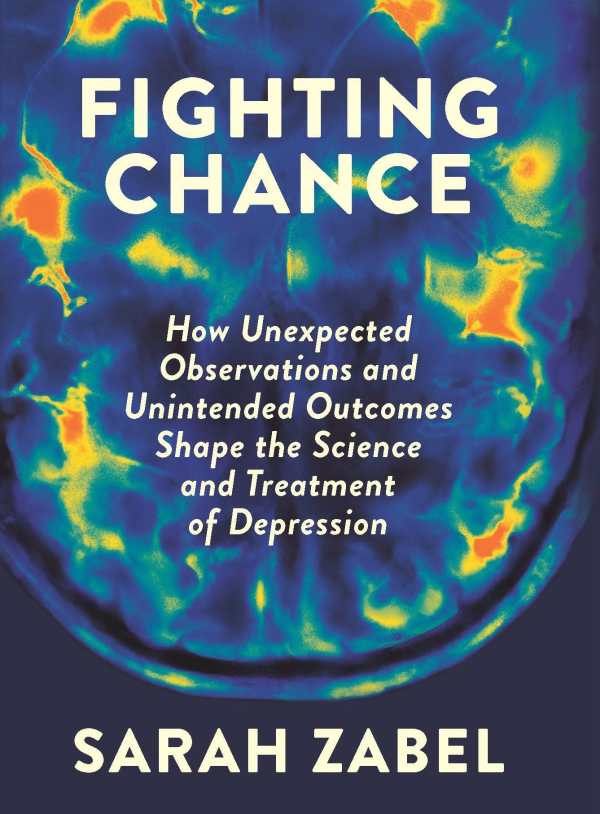Fighting Chance
How Unexpected Observations and Unintended Outcomes Shape the Science and Treatment of Depression
Though acknowledging that depression can have ill effects, Fighting Chance approaches its subject with hope.
Sarah Zabel’s comprehensive text Fighting Chance concerns the science of depression, emphasizing effective treatments and the often roundabout ways they are stumbled upon.
Concentrating on case studies that helped to shape scientific understandings of depression and its causes, cures, and effects, the book illustrates the evolution of the science of depression for general audiences. The book reveals that, though the science around depression has often relied on serendipitous discoveries, treatments for it are also developed across years of careful clinical research. Zabel discusses the latest treatment options with humanity; because she is not a medical professional, she does so without prescribing specific treatments. The book also includes stories of those who live with depression, including a gregarious colleague who was hospitalized for suicidal ideation after the death of her dog, to clarify both the gravity of depression and the importance of research to combat it.
The book’s stories of others living with depression—like a woman who fought to get her son the treatment he needed; a bipolar woman whose hallucinations followed the cancer diagnoses of several family members; and a transgender teenager who sought help following self-harm—are sympathetic, helping to contextualize and humanize its scientific claims. Despite these touches, the book maintains objectivity, surveying literature on its subject well and presenting varying ideas with care.
The book is divided by subject matter, with sections dedicated to depression’s physiological effects, root causes, direct consequences, and most promising medical interventions. Individual chapters cover subtopics like neuroplasticity, circadian rhythms, diet, and psychotherapy; many are dense with statistics and medical nomenclature. The material is well organized and includes studies conducted decades apart, all analyzed with care. Charts are present to clarify some topics, covering issues like suicide and the functions of the brain. They draw on credible sources, including the World Health Organization and the Centers for Disease Control and Prevention.
Though its presentation is clinical throughout, the book builds to an emotional ending in which the motives behind its work are made clear. In the end, the human impact of this science is obvious: Zabel reminds her audience of how many people are vulnerable to depression, and warns that its symptoms should always be heeded. She presents depression as more of an illness than an emotion.
Though acknowledging that depression can lead to ill health, disability, and suicide, Fighting Chance also approaches its subject with hope, taking an expansive look at the underlying science to suggest the possibility of a less troubled future.
Reviewed by
Joseph S. Pete
Disclosure: This article is not an endorsement, but a review. The publisher of this book provided free copies of the book and paid a small fee to have their book reviewed by a professional reviewer. Foreword Reviews and Clarion Reviews make no guarantee that the publisher will receive a positive review. Foreword Magazine, Inc. is disclosing this in accordance with the Federal Trade Commission’s 16 CFR, Part 255.

